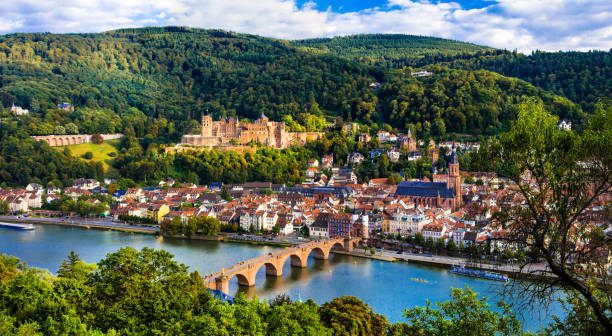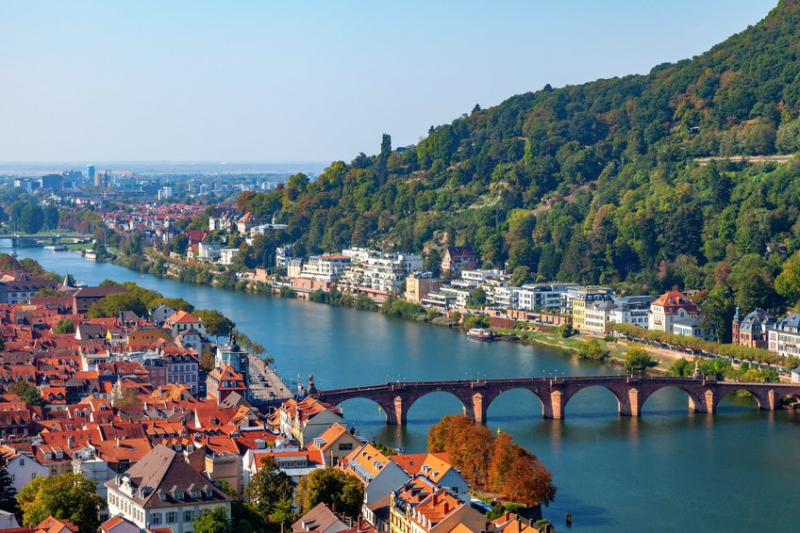Neckar River

The Neckar is a 362-kilometer-long (225-mile) river in Germany that flows primarily through Baden-Württemberg, with a short segment passing through Hesse. The Neckar is a prominent Rhine right tributary. It rises at 706 m (2,316 ft) above sea level in the Schwarzwald-Baar-Kreis near Schwenningen in the Schwenninger Moos conservation area, then passes through Rottweil, Rottenburg am Neckar, Kilchberg, Tübingen, Wernau, Nürtingen, Plochingen, Esslingen, Stuttgart, Ludwigsburg, Marbach, Heilbronn, and Heidelberg, before discharging 145 m3/s. Since 1968, the Neckar has been navigable for cargo ships via 27 locks for about 200 kilometres (120 mi) upstream from Mannheim to the river port of Plochingen, at the confluence with the Fils.
The Neckar valley, which runs from Plochingen to Stuttgart, is densely inhabited and strongly industrialized, with some well-known firms. The Neckar cuts a picturesque, meandering, and in many parts steep-sided valley amid fossiliferous Triassic limestones and Pleistocene travertine between Stuttgart and Lauffen. Many castles can be found in the Neckar's valley in the Odenwald hills, including Hornberg Castle and Guttenberg Castle in Haßmersheim, as well as the now-decommissioned Obrigheim Nuclear Power Plant and the operational Neckarwestheim Nuclear Power Plant.
Length: 362.4 km













